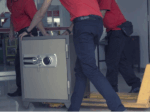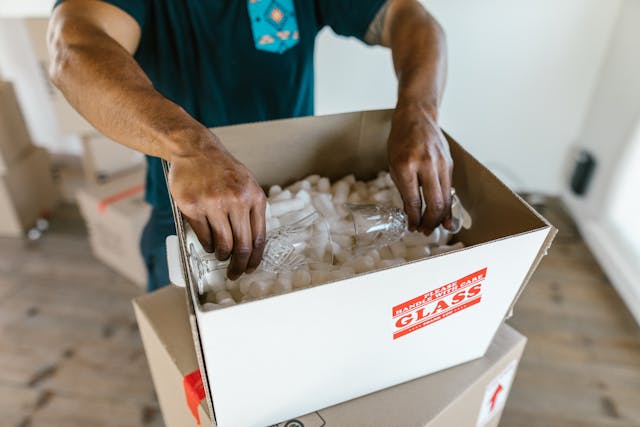Maintaining a pest-free commercial environment is crucial for businesses across all industries. Whether you operate a restaurant, office, warehouse, or retail store, the presence of pests can damage property, compromise hygiene standards, and even harm your reputation. Choosing the right commercial pest control service is not just about eliminating pests—it’s about ensuring the safety, compliance, and operational efficiency of your business. With so many options available, however, making the right choice can be daunting. This article outlines key considerations to help you select a commercial pest control service that meets your unique needs.
1. Assess Your Pest Control Needs
Before contacting a pest control service, it’s essential to assess your specific requirements. Different types of businesses face different pest challenges. For instance, restaurants and food processing facilities may be more prone to rodents, cockroaches, and flies, while office buildings might struggle with ants, spiders, or occasional bird infestations. Identify the type of pests you are dealing with, the severity of the problem, and the areas that require treatment. This will help you communicate your needs clearly and ensure the service provider has experience handling similar situations.
2. Verify Licensing and Certifications
Commercial pest control involves the use of chemical treatments and methods that require professional expertise. Therefore, it is critical to choose a licensed and certified pest control company. Licensing ensures that the company meets local regulatory requirements and follows proper safety protocols. Certifications from recognized industry organizations, such as the National Pest Management Association (NPMA) in the United States, indicate that technicians are trained in the latest pest control techniques and safety standards. Always ask for proof of licensing and certification before hiring a service.
3. Evaluate Experience and Expertise
Experience matters when it comes to pest control. A company that has been in the industry for several years is likely to have encountered a wide range of pest issues and developed effective treatment strategies. Moreover, specialized expertise in your industry can make a significant difference. For example, pest control in healthcare facilities or food establishments requires adherence to strict sanitation and safety protocols. Ask potential service providers about their experience with businesses similar to yours, including case studies or references, to ensure they can handle your specific needs.
4. Review Treatment Methods and Products
Different pest control services use varying treatment methods, ranging from chemical pesticides to eco-friendly and integrated pest management (IPM) techniques. Integrated Pest Management focuses on long-term prevention by combining sanitation, habitat modification, monitoring, and minimal chemical use. When selecting a service, inquire about their treatment methods, the safety of their products, and their approach to minimizing environmental impact. Choosing a provider that offers safe and effective solutions is particularly important if you operate in areas frequented by employees, customers, or food.
5. Check for Customization and Flexibility
Every business has unique operational requirements, and a one-size-fits-all approach to pest control may not be effective. Look for a commercial pest control service that provides customized treatment plans tailored to your specific needs. This includes flexible scheduling to minimize disruption to daily operations, ongoing monitoring programs, and preventive measures designed for your facility’s layout and industry. A company willing to adapt its approach to your requirements demonstrates a commitment to achieving the best results.
6. Consider Response Time and Emergency Services
Pest issues can escalate quickly, potentially causing significant damage or compliance violations if not addressed promptly. Evaluating a service provider’s ability to offer timely commercial pest control is essential, as rapid response can prevent infestations from worsening. Ideally, the company should offer emergency services for urgent situations and have a clear protocol for handling them. Quick and effective action not only protects your property but also reduces the likelihood of recurring problems.
7. Assess Reputation and References
Researching a company’s reputation is a crucial step in the selection process. Look for online reviews, testimonials, and ratings from other commercial clients. Additionally, ask for references and speak directly with businesses that have used their services. Positive feedback from companies in similar industries is a strong indicator of reliability and effectiveness. Avoid choosing a provider based solely on price, as the cheapest option may not provide the quality or consistency required for commercial pest management.
8. Understand Pricing and Contracts
Commercial pest control services often operate under contracts that can be monthly, quarterly, or annual. Understanding pricing structures, what services are included, and contract terms is essential to avoid surprises later. Some companies offer flat rates for ongoing monitoring, while others charge based on the type of treatment or severity of the infestation. Compare multiple quotes and ensure that the cost aligns with the level of service, expertise, and customization offered. Be wary of hidden fees or overly long contracts without clear performance guarantees.
9. Prioritize Safety and Compliance
Safety is a top concern in commercial pest control. Ensure that the company adheres to occupational safety standards and uses products approved by relevant regulatory authorities, such as the Environmental Protection Agency (EPA) in the U.S. If your business operates in a sector with strict regulatory requirements—such as healthcare, food services, or childcare—confirm that the provider understands and complies with industry-specific standards. This not only protects your employees and clients but also shields your business from potential legal issues.
10. Look for Long-Term Prevention Strategies
Effective commercial pest control is not just about immediate extermination but also about preventing future infestations. Ask potential providers about their long-term prevention strategies, including regular inspections, monitoring programs, and employee education on pest prevention. A company that emphasizes proactive measures demonstrates a commitment to maintaining a pest-free environment over time.
Conclusion
Choosing the right commercial pest control service requires careful consideration of multiple factors, including experience, licensing, treatment methods, customization, and long-term prevention strategies. By thoroughly assessing your needs, verifying credentials, evaluating methods, and reviewing reputation, you can select a service that not only resolves current pest problems but also safeguards your business in the future. Investing in a professional and reliable pest control provider ensures a safe, hygienic, and compliant environment, allowing your business to thrive without the disruption and risks associated with pests.















